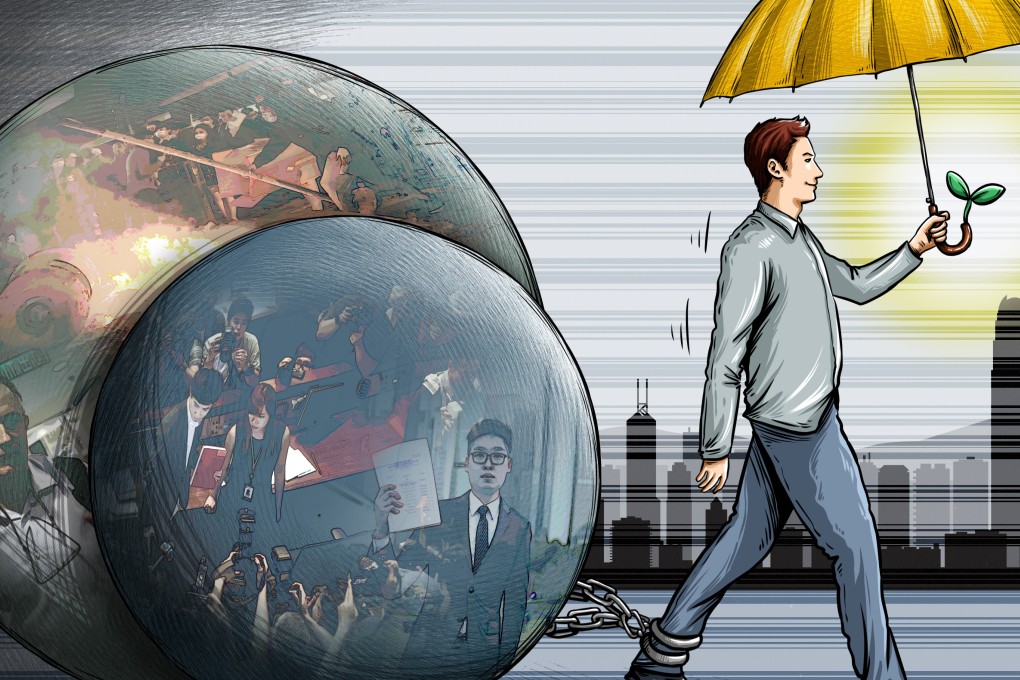Hong Kong’s Occupy protests five years on: after all the prosecutions, was the movement in vain?
- The movement’s leaders were found guilty by a Hong Kong court on charges relating to public nuisance for their roles in the 2014 sit-ins
- Did the founders bring positive change to the political landscape, or leave only a trail of disappointing outcomes?

Over the weekend, before a court ruled on their fate, Benny Tai Yiu-ting, Dr Chan Kin-man and the Reverend Chu Yiu-ming returned to where it all began.
They went to seek solace not just in their faith but also supporters as they appeared at Kowloon Union Church on Saturday afternoon in an emotional gathering of prayers, tears and aching acceptance that the journey was coming to an end for now – the road over, the cause shelved.
“If faith is all about pursuing justice, as long as there is injustice in society, our faith will be to carry on the struggle,” Tai said as his eyes reddened and the crowd applauded and sang.
That struggle began six years ago in the same red-brick building when the trio launched their “Occupy Central with Love and Peace” campaign.
The three, who had more black hair than white back then, had vowed to mobilise 10,000 people to block roads in the city’s business hub to fight for universal suffrage.
No one thought their civil disobedience campaign – which many had poured scorn on – would go on to become a movement a hundred times bigger by September 28, 2014, unleashing a powerful force of unity few had anticipated. In the end, the mass protest paralysed parts of the city for 79 days, but it altered Hong Kong’s political landscape permanently.